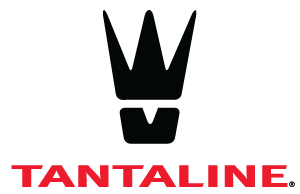Description
Valves of many different types and sizes are used as critical components to manage fluid flow in process equipment. Corrosion due to aggressive chemical environments can cause problems such as reduced reliability, increased safety risks, leaks, and contamination of the process fluid. In many cases corrosion of metal valves is caused by the removal of the passive surface oxide layer after exposure to acidic and/or chlorinated compounds and can commonly appear as pitting. Different metal alloys will reform the passive surface oxide layer at varying rates which impacts the overall corrosion resistance of the valve. Use of exotic alloys in the manufacture of valves to reduce corrosion is limited due to the cost and lead-time required to obtain these specialized parts. Tantalum metal has proven to rapidly reform a surface oxide layer in even the most aggressive hot acid environments. By applying a tantalum surface layer using our unique Tantaline® treatment, the practicality of its use is now a more affordable option for valves.
Benefits
The proprietary Chemical Vapor Deposition (CVD) process used by Tantaline CVD produces a uniform, thin diffusion bonded layer of tantalum on readily available stainless steel valves and related equipment. This layer conforms to complex geometries such as valve bodies and orifices ensuring surface uniformity. Tantaline® treatment provides superior corrosion and pitting resistance for extended service life in chlorinated compounds, hot acids, and other aggressive chemicals. The robust, metallurgically bonded layer can withstand high pressure and erosion corrosion conditions found in pipelines, vessels, and process equipment. These features provide an economical alternative to valves made from exotic alloys such as Hastelloy®*, Inconel®**, Zirconium, and Titanium with shorter lead times.
Availability
A wide range of styles and configurations are suitable for Tantaline® treatment.
Types:
- Globe
- Needle
- Plug
- Ball
- Check
- Relief
- Valve Components
Use
| Chemical Processing | Hot acids, wet and dry chlorine, sulfur compounds, sour gases containing hydrogen sulfide (H2S) compounds |
|
| Oil & Gas | Acid gases (CO2, H2S, SO2), ammonia (NH3), hydrogen cyanide (HCN), alkylation, and amine derivatives | |
| Pharmaceutical | Oxidizing agents including hydrogen peroxide (H2O2), bromine (Br), chlorine (Cl), nitration, and various cleaning chemistries | |
| Semiconductor | Strong HCl etchants, corrosive Nital (alcohol + nitric acid), byproducts of Silicon deposition | |
| Mining | Strong acid leaching, pressure oxidation, heap leaching | |
| Marine | Corrosive sea water with chlorides, dissolved oxygen (O2), microbial corrosion |
Key Technical Information
Hastelloy®* Inconel®**, Zirconium, Titanium, and Stainless Steel valve components are susceptible to Stress Corrosion Cracking (SCC) and pitting especially in hot acids like HCl. Tantaline® treatment offers the following beneficial characteristics:
- Chemically resistant to SCC and pitting in many aggressive media and environments.
- Tantalum layer remains passivated and inert to corrosion under high temperature (>200⁰ C) acidic conditions including concentrated hydrochloric acid (HCl) and
sulfuric acid (H2SO4).*** - Superior corrosion resistance against wet, dry chlorine atmospheres, and other chlorinated environments.
**Inconel® is a trademark of Special Metals Wiggin Limited.
***FJ, H. (n.d.). Properties of Tantalum for Applications in the Chemical Process Industry


